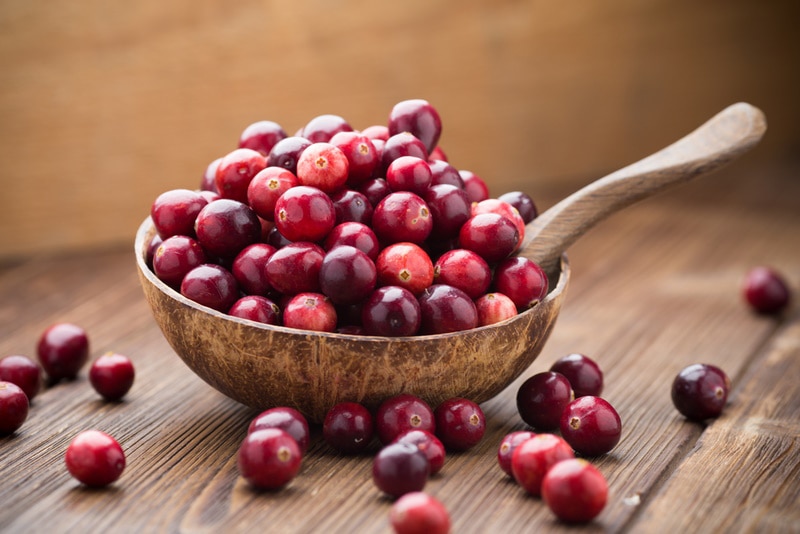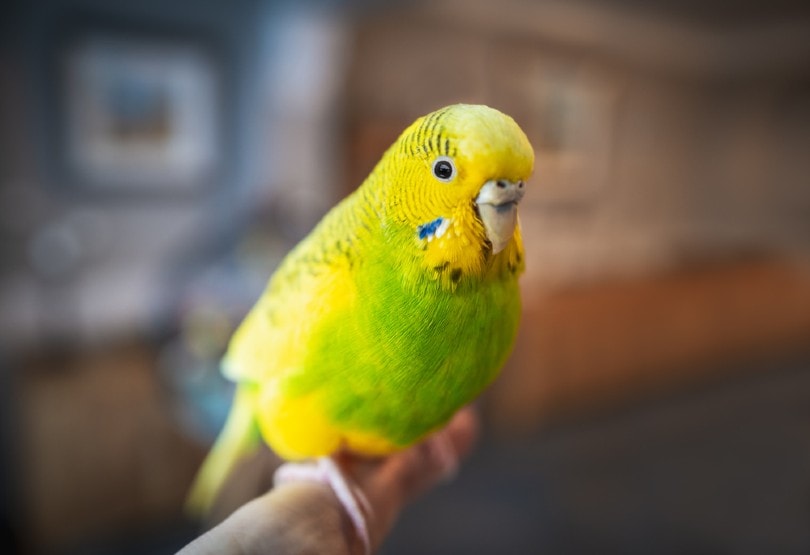Why Do Cockatiels Puff Up? 6 Likely Reasons
Updated on
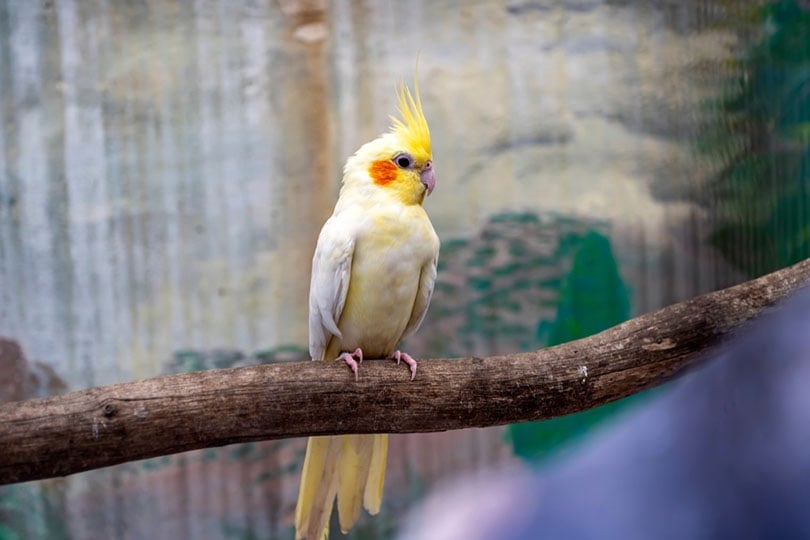
If you spend enough time around a cockatiel, you’ll probably notice them puff up from time to time. In birds, puffing refers to an action where they extend their chest feathers and appear larger and fluffier.
However, exactly what puffing means can vary. It all depends on the situation and other context cues you may be able to glean. Each bird is different, as well, with some puffing up far more than others.
Here’s a list of reasons your cockatiel may be puffing up:
The 8 Reasons Why Cockatiels Puff Up
1. Temperature Regulation
Cockatiels may puff up to help keep warm air trapped against their body. Usually, this occurs when the bird is cold and trying to get warmer. Your cockatiel can’t just go put on a jacket as we can, so they have to keep warm in a different way. Cockatiels have a layer of insulating feathers that keep them warm. When cockatiels puff up in response to cold temperatures, they trap air in between their feathers. The trapped air gradually warms up from the bird’s body heat, helping them stay warm.
It’s recommended to keep your bird away from drafts and areas that tend to get cold. While cockatiels are pretty hardy birds, they can develop health problems if they get too cold.
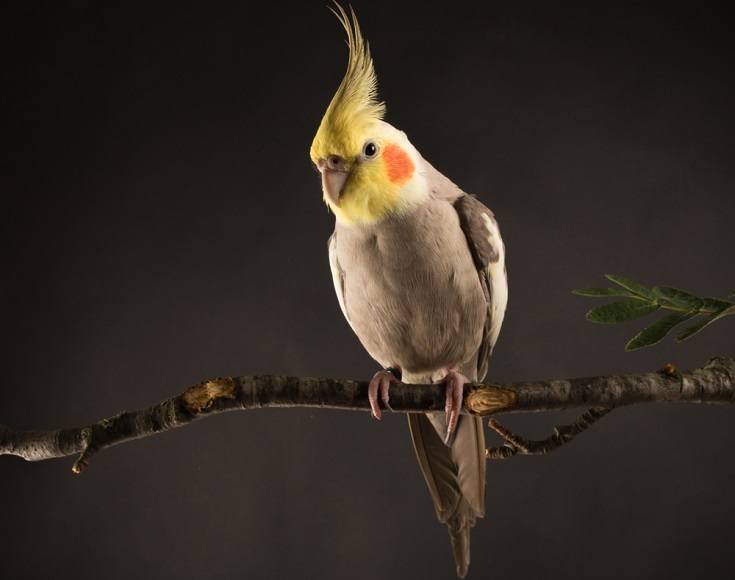
2. Sleeping
Cockatiels often puff up to help them stay warm while they are sleeping. They need rest just like every other animal to stay happy and healthy. Often, cockatiels will perch on a high point in their cage while sleeping. When a cockatiel is sleeping, they will lift off a foot and hold it close to their body, puff up their feathers, and tuck their head on their back, between their wings. Like humans who roll around in their sleep, cockatiels can switch between their resting and perching foot while they sleep.
You should ensure that your bird has a nice, quiet space to sleep in. You shouldn’t disturb them when they are sleeping, as it usually means that they need to sleep. With that said, excessive sleeping and lethargy can indicate an underlying health problem.
3. Illness
Cockatiels may puff up when they aren’t feeling well. Most health problems can cause your bird to puff up, so this sign doesn’t exactly point toward one particular health problem. For instance, digestive problems and respiratory illnesses can lead to excessively puffy feathers. Puffing up while sick is your bird’s equivalent of wearing extra layers when you’re sick. However, just like us, not all birds may puff up when they’re feeling unwell.
If your bird is feeling unwell, you’ll probably notice other signs. Signs of an ill bird may include the following:
- Puffed up feathers
- A bobbing tail
- Heavy breathing
- Lethargy
- A reluctance to move or fly
- Changes in fecal output, color, consistency, and volume
- Sitting on the cage floor or nest box excessively
- Squinting eyes
- Abnormal discharges from any orifice
- Dull feather luster
- Weight loss
- A dirty, pasty vent
- Improper posture
If you notice any of these signs, then you should seek veterinary care for your bird. Often, illnesses can be treated if they are caught early. Birds often attempt to mask illnesses. Therefore, any suspicions of your bird acting out of the ordinary warrant a veterinarian’s input.
Many diseases and ailments have a better prognosis if diagnosed in their earlier stages.
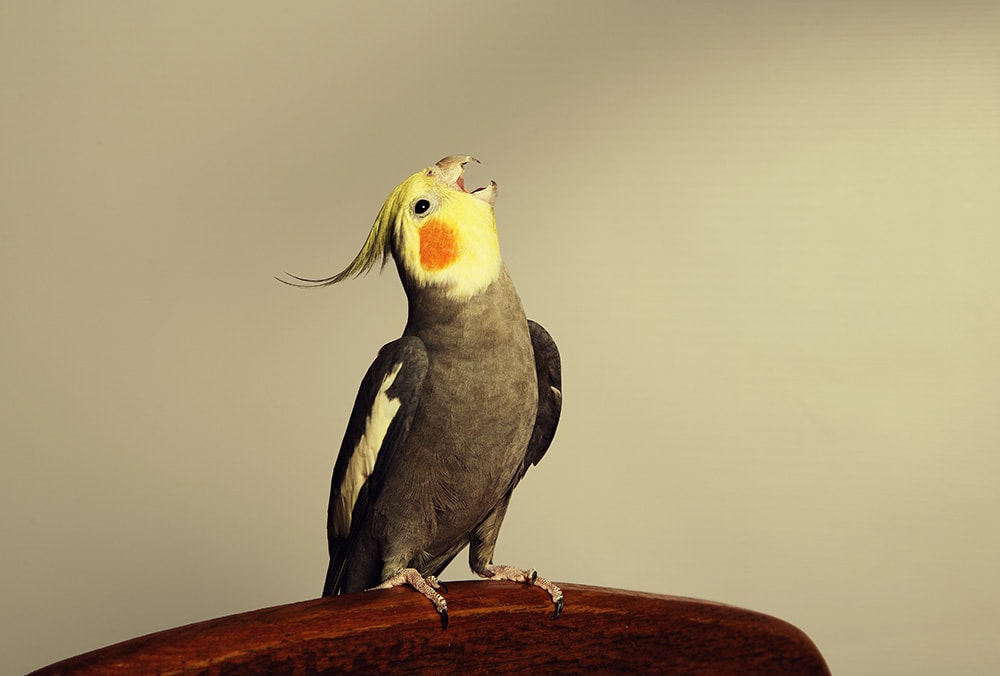
4. Fear
Like many animals, cockatiels may try to make themselves look bigger when displaying fear or dominance. Furthermore, cockatiels may also puff up their feathers when they feel threatened. When you first bring your cockatiel home, this may mean that they puff up their feathers whenever you’re around. It’s usually a sign that the bird is stressed and trying to make itself look bigger to scare away any potential threat.
If you notice any puffing due to fear, it’s important to train the behavior out. While puffing up isn’t necessarily harmful, you don’t want the bird deciding to bite. In the beginning, this may mean taming your bird more, which often means handling and interacting. If the behavior is particularly troublesome, you may need to work with a trainer or specialist.
Fear can be a sign of underlying health issues, as hurt birds may feel threatened more often. If you notice that your bird is suddenly more fearful, it may be due to a health problem. You should visit the vet in this case to ensure your bird is healthy.
5. Relaxation
Cockatiels may puff up their feathers when they are relaxing or being petted by their owners. Often, you’ll notice other signs of relaxation, too, like closed eyes or a lowered head.
Cockatiels may display relaxed and contented behaviors whenever they are happy—inside or outside their cage. Keeping an eye out for these behaviors can help you figure out what your bird likes and doesn’t like. Use positive reinforcement and calm sounds when communicating with your parrot, this may make your bird feel safer in their environment. You should work to strengthen your bond with your bird to ensure their social and mental well-being.
Of course, puffing feathers isn’t always a sign of happiness. Don’t assume your bird is happy just because they are puffy.
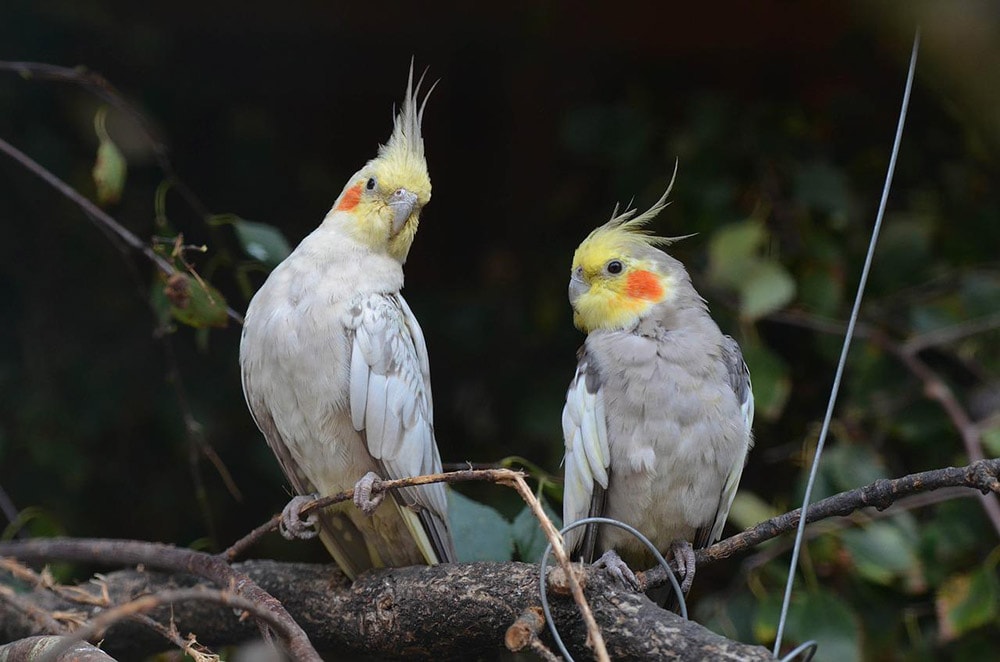
6. Mating and Courting
Cockatiels are social birds and have complex mating behaviors. They may puff up their feathers as part of their courting display, especially if they are male.
Usually, this puffing is accompanied by several other behaviors, too, like singing and head bobbing. Male cockatiels are known for their exciting, dramatic displays, so it isn’t odd to notice this behavior and others. They may even hang upside down or spread their wings.
If you keep a male and female together, you should be aware of their courting behaviors. You should only breed your cockatiels if you’re experienced or working with someone experienced.
Conclusion
All types of Cockatiels may puff up their feathers for all sorts of reasons. For instance, your bird may puff up their feathers if they are content, or they can puff when ill or cold. Sometimes, puffing can be a sign of an underlying problem that needs to be dealt with. Even if there isn’t something physically wrong with the bird, it may be a sign that the room is too cold or that they’re stressed about something.
If you suspect your bird is unwell, look for other signs of distress and schedule an appointment with your avian vet.
Featured Image Credit: ONGUSHI, Shutterstock


